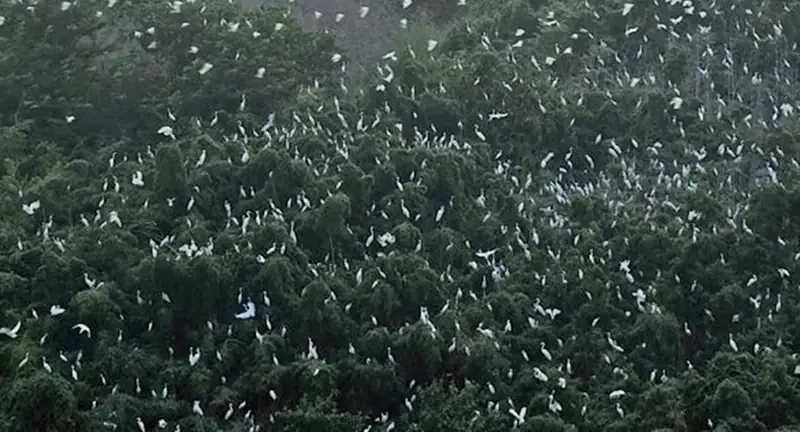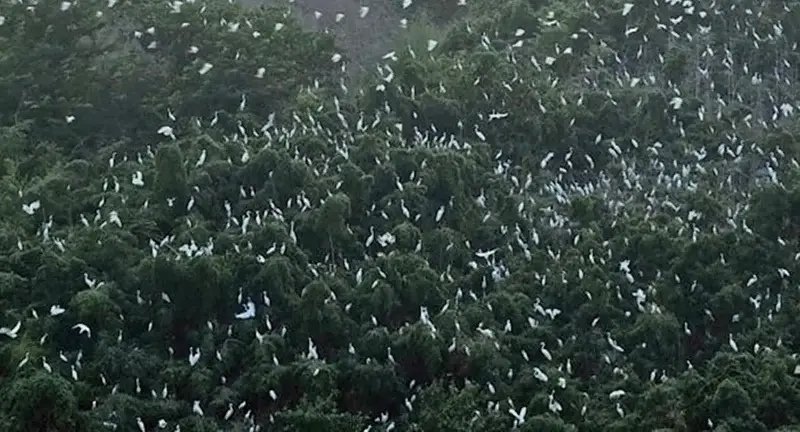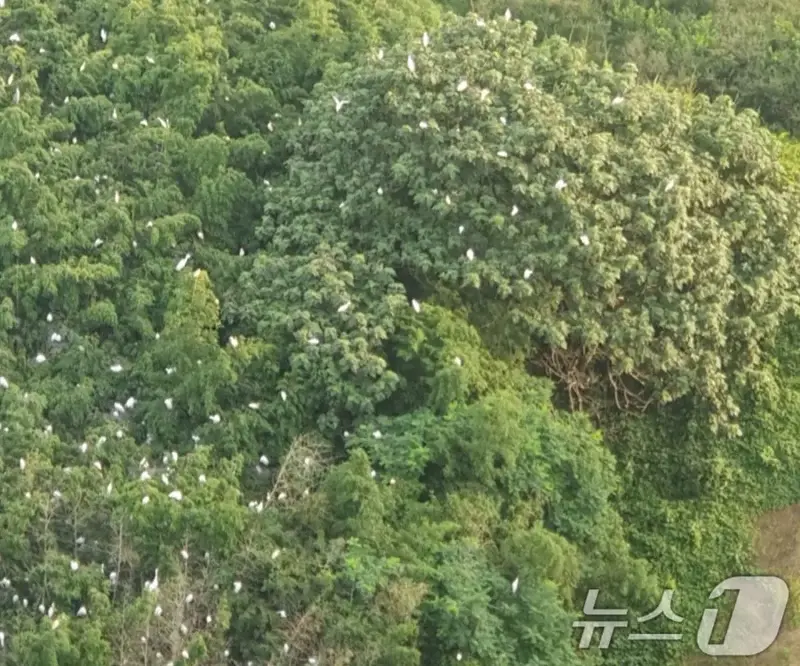

It is reported that local residents are experiencing great inconvenience due to animals appearing in groups of over 1000 animals in the Naju area of Jeollanam-do.
News1 recently reported that an apartment in Naju, Jeollanam-do, near an egret habitat is troubled by a swarm of egrets that have become uninvited in the summer.
According to reports, more than 1000 egrets are nesting on a site near an apartment in Songwol-dong, Naju-si, Jeollanam-do.
These egrets were found to have formed a habitat here while feeding on the banks of Yeongsan River. In the midst of this, a 1,500-unit apartment moved in next to this place last January, causing inconvenient living problems. It was reported that an egret was seen walking through the underground parking lot of the apartment.
In the last month, it was revealed that there were about 10 complaints about egrets in this apartment received by Naju City.

Egrets are not aggressive towards people, but it was reported that their cries filled the apartment complex late in the evening. Large amounts of egret feces are also known to give off a bad smell. It has also been reported that there have been cases where even the underground parking lot of an apartment was covered with feces.
In the beginning, residents formed a consensus on coexistence where egret habitats came first. However, in the summer season, complaints were eventually filed due to life inconveniences that became serious.
However, after receiving complaints from residents, Naju City is still in a situation where there is no clear solution. Egrets are wild animals classified as protected birds. Since July is the breeding season, they cannot be caught or nesting. It is reported that Naju City is planning to work head-to-head with representatives of the apartment's residents and wild bird experts to prepare countermeasures.
In this regard, an official from Naju City told News 1, “Even if an artificial nest is made, there is no guarantee that egrets will move their habitats. It's not easy to come up with realistic alternatives. Most birds in the egret family leave the area around September, so the inconvenience can continue for months.” He also emphasized, “As summer complaints have occurred, we will resolve complaints and take measures to coexist with migratory birds through countermeasure meetings.”

The egret, a wild animal native to Korea, is a bird found mainly in wetland environments such as reservoirs, rivers, estuaries, and rice fields. Typical examples include large egret, medium white roe, steel white roe, and yellow roe.
The large egret is the largest, about 90 cm long, and has a long neck and bends in an S shape. Medium egrets are medium in size and have decorative feathers on their necks during breeding season. Steel egrets are the smallest and are characterized by their yellow feet and black beak in summer. Yellow oysters are distinguished by their brownish color and are rarer than other egrets.
Egrets mainly eat fish, insects, and crustaceans and hunt in shallow water. Egrets are loved for their graceful appearance and white feathers, but their numbers are declining due to habitat destruction. Wetland conservation is important for protection.
